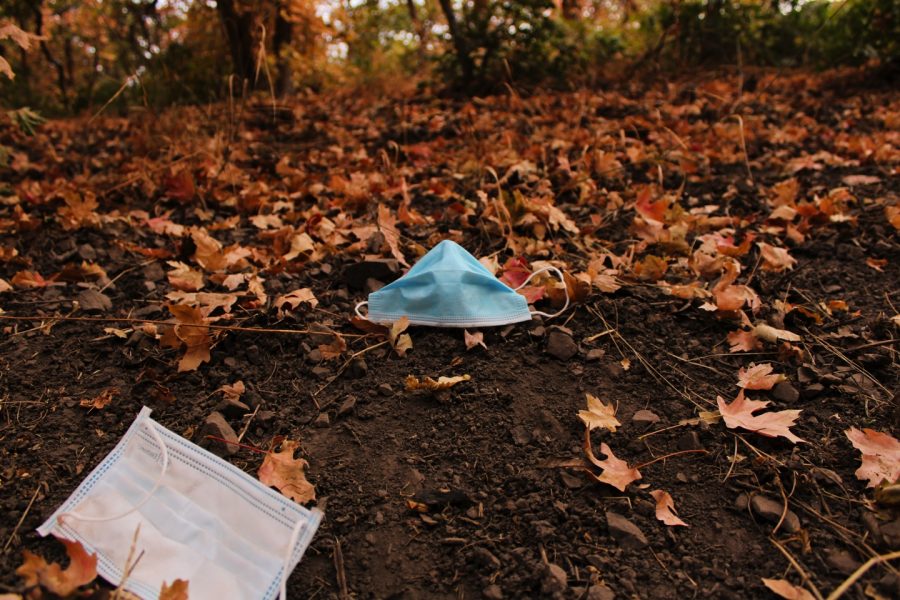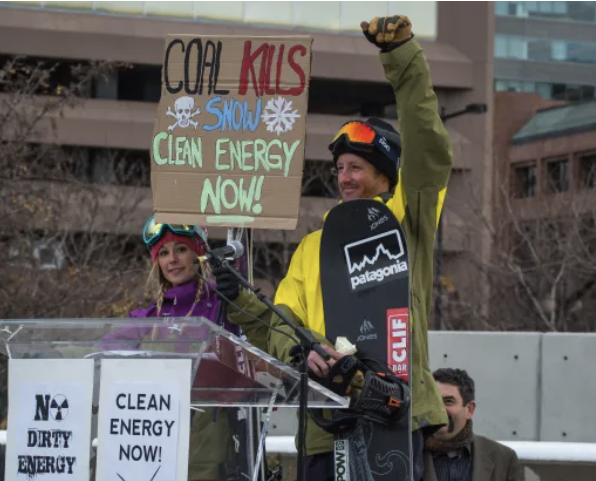Unmasked: The Global Pandemic of the Outdoors
October 22, 2020
While you most likely won’t catch COVID-19 from a discarded mask, it’s safe to say that littered masks are becoming a new pandemic to the Earth, just like the coronavirus has been to us earthly inhabitants. You’ve probably already seen them all over the place. Face masks. Littered all over the ground — on sidewalks in the park, in the parking lots of supermarkets, and even on hiking trails. These face masks of all colors are not wildflowers or decorations, they are pieces of garbage, plain and simple. They are dropped or left behind by individuals who weren’t aware they had lost them, or who didn’t care enough to pick them up, or that they would now be taking up space on our planet.
Experts are already predicting that masks will leave a detrimental impact on our environment if something isn’t done to contain this problem and the waste. PPE equipment is already making its way through the ocean — The Guardian reported that plastic gloves and masks are washing up on beaches throughout the world. How can we be better?
I have three challenges for you. One, whenever you see a discarded mask laying on the ground, throw it away. Don’t ignore it and keep walking. We all need to be held accountable for keeping our Earth clean and doing our part to control the waste left behind from this pandemic. Keep a pair of gloves easily accessible in your purse, backpack, or car so that you can pick up used masks and discard them in the trash. The worst part about seeing masks littered around is, the majority of the time, these masks are littered in places that are so close to trash cans. I have to assume that people are not purposefully losing their masks, but we all need to be a little more mindful of this.
Two — if you don’t already have a reusable mask, go get one! We are too far into this pandemic for everyone to continue using disposable masks unless they are a last resort. The New York Times reported that, if everyone in the United Kingdom used a new disposable mask every single day for an entire year, they could see an increase of 66,000 metric tons of plastic waste per year from these masks. Think that sounds bad? It could take upwards of 57,000 metric tons just to package all of these masks. And this is one, relatively small country — so just imagine the impact of plastic waste on the world when every country is seeing an increase.
My third and final challenge for you is that, while these statistics and facts about mask clutter may be scary to those who love our Earth and already worry about climate change, plastic waste, and irreversible damage, please do not stop wearing a mask. This is not an editorial for you to decide that wearing a mask isn’t worth the risks of the litter that may come with it later. Please continue wearing a mask to do your part to keep our communities safe and healthy, but also remember to keep track and appropriately discard of your masks. Our planet isn’t a trash can for the waste left behind from the coronavirus. Instead, we should utilize the outdoors and the joy it can bring us to escape some darkness and craziness of this past year, while making sure we respect these spaces, too.






